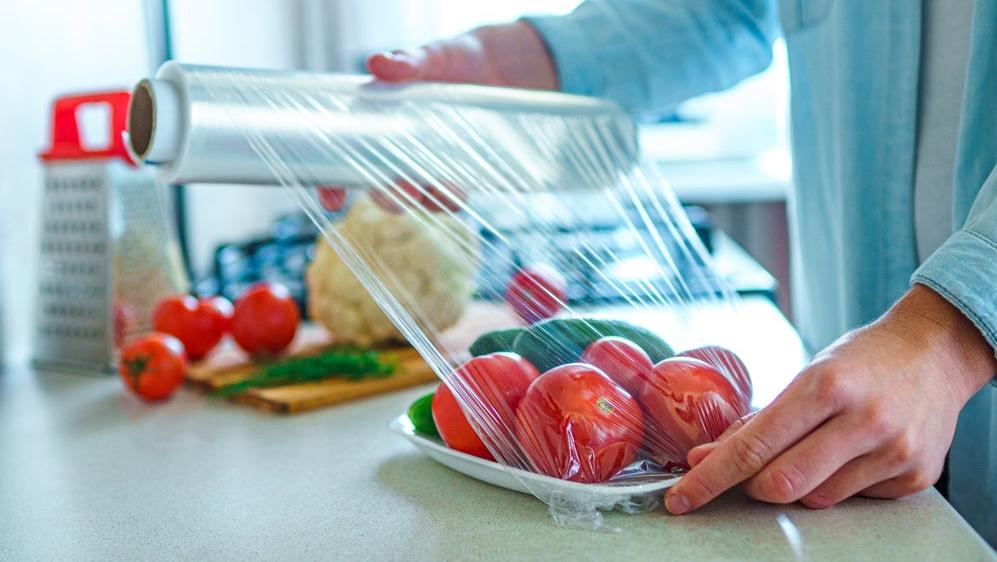There's A New Plastic Wrap Alternative On The Way
Consumers may soon have another option that's safer and better for the planet.
We may receive a commission on purchases made from links.
Not only is plastic wrap an environmental nightmare; it's also dreadfully sticky and tough to wield with finesse. One stray sheet, and you're bound up in plastic like Cindy Lou Who after she's gift-wrapped and thrown on a conveyer belt by the Grinch. Fortunately, plastic food wrap could be on its way out—thanks to researchers who, per a Rutgers press release, have developed a safe, green, "spray-on" alternative to traditional plastic wrap.
What is “spray-on” food wrapping?
The release explains that researchers from Rutgers and Harvard have teamed up to develop a "coating" meant to render plastic wrap obsolete. An application device "sprays" biopolymer and polysaccharide-based fibers, which then wrap around the food. The process is described thusly:
"Like the webs cast by the Marvel comic book character Spider-Man, the stringy material can be spun from a heating device that resembles a hair dryer and "shrink-wrapped" over foods of various shapes and sizes, such as an avocado or a sirloin steak. The resulting material that encases food products is sturdy enough to protect bruising and contains antimicrobial agents to fight spoilage and pathogenic microorganisms such as E. coli and listeria."
The coating, which biodegrades in just three days, could go a long way toward reducing landfill load and the overall spread of microplastics. "I'm not against plastics," said Rutgers researcher Philip Demokritou in the release. "I'm against petroleum-based plastics that we keep throwing out there because only a tiny portion of them can be recycled. Over the past 50 to 60 years, during the Age of Plastic, we've placed 6 billion metric tons of plastic waste into our environment. They are out there degrading slowly. And these tiny fragments are making it into the water we drink, the food we eat and the air we breathe."
The coating is also a step toward reducing food waste. Researchers found that the coating "extended the shelf life of avocados about 50 percent," which is good news considering the skyrocketing cost of grocery staples.
Unfortunately, the researchers don't have near-term plans to produce the wrap on the consumer level. But if you're ready to give your plastic wrap the slip, allow me to recommend beeswax food wrap. While it's pricier than a box of standard food wrap—one container will run you about 30 bucks, depending on brand—beeswax wrap is reusable for up to a full year. Just use it, wash it, let it dry, and use it again. It's also considerably less sticky than plastic wrap, which is good news for the clumsy ones among us.
